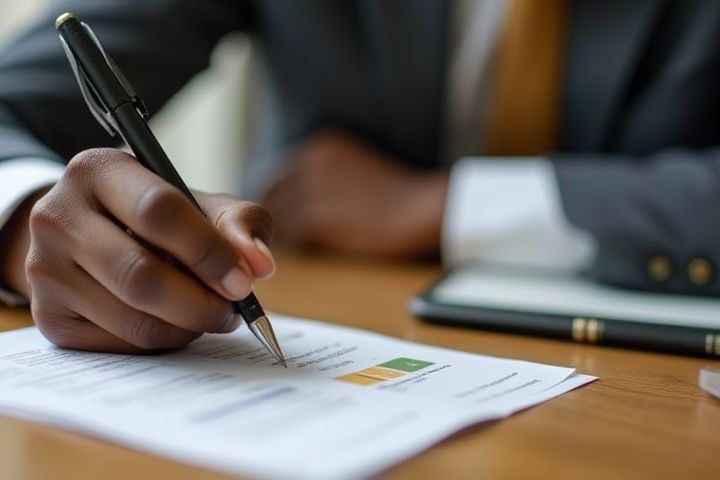
Education reforms in Nigeria aim to enhance the quality and accessibility of learning across the nation. The introduction of policies like the Universal Basic Education (UBE) emphasizes free and compulsory education for children aged 6 to 15 years. These reforms also highlight the need for curriculum updates to incorporate technology and skills development, preparing students for a competitive job market. Teacher training programs are being improved to ensure educators are well-equipped with modern teaching methodologies. Your involvement in community-driven educational initiatives can further support these reforms and create a lasting impact on the future of Nigeria's education system.
Universal Basic Education initiative
The Universal Basic Education (UBE) initiative in Nigeria aims to provide free and compulsory education for children aged 6 to 15 years, addressing barriers like accessibility and quality. This program emphasizes both primary and junior secondary education, striving to increase enrollment rates and reduce dropouts across the nation. Investment in teacher training and infrastructural development are critical components of the reform, ensuring that schools are equipped to deliver a comprehensive curriculum. As part of the initiative, efforts to enhance accountability and governance reflect a commitment to improving educational outcomes for all Nigerian children.
Curriculum standardization
Curriculum standardization in Nigeria aims to create a cohesive educational framework that ensures uniformity in learning outcomes across all states. This initiative includes the development of a National Policy on Education that emphasizes inclusive practices and equitable access to quality education for every child. Furthermore, the incorporation of technology and innovative teaching methods is integral to these reforms, preparing students for a competitive global landscape. By prioritizing critical thinking and 21st-century skills, Nigeria strives to enhance the overall effectiveness and relevance of its education system.
Increased teacher training programs
Education reforms in Nigeria prioritize enhanced teacher training programs to elevate teaching standards and improve student outcomes. These initiatives aim to equip educators with modern pedagogical skills, ensuring they can effectively engage students in diverse learning environments. By investing in continuous professional development, the reforms aspire to adapt curriculum content to meet 21st-century skills and societal needs. This approach not only seeks to improve academic performance but also to foster a more competent workforce for Nigeria's future.
Focus on STEM education
Education reforms in Nigeria increasingly emphasize STEM (Science, Technology, Engineering, and Mathematics) education to enhance the country's global competitiveness. By integrating innovative teaching methods and technologies into the curriculum, students are better equipped with critical thinking and problem-solving skills essential for the modern workforce. The Nigerian government is also collaborating with international organizations and private sectors to provide resources and training for educators in these fields. As a result, you can expect a more skilled workforce that drives economic growth and fosters innovation at all levels of society.
Education technology integration
Education reforms in Nigeria emphasize the integration of technology to enhance learning experiences and outcomes. The deployment of digital platforms and tools aims to bridge educational gaps, particularly in remote areas where traditional resources are limited. You can expect initiatives that promote skill development in Information and Communication Technology (ICT), preparing students for a digital economy. Each reform strategy targets increased accessibility, improved quality of education, and better student engagement in the classroom.
School infrastructure development
Education reforms in Nigeria prioritize enhancing school infrastructure to create conducive learning environments. Key initiatives include the construction and renovation of classrooms, provision of essential learning materials, and access to clean water and sanitation facilities. The government collaborates with international organizations to secure funding and resources, aiming to reduce overcrowding and improve educational outcomes. These developments directly impact student engagement and academic performance, ultimately fostering a more robust education system.
Girl-child education emphasis
Education reforms in Nigeria prioritize girl-child education to enhance gender equality and empower young women. Initiatives aim to reduce barriers such as poverty, cultural biases, and inadequate facilities that hinder girls from accessing quality education. Policies like the Universal Basic Education Act promote enrollment and retention of female students through scholarships and awareness campaigns. By investing in girl-child education, Nigeria seeks to improve overall socio-economic development and create a more inclusive future for all citizens.
Policy on inclusive education
Education reforms in Nigeria emphasize policies aimed at promoting inclusive education to ensure equal access for all learners, regardless of their backgrounds or abilities. These initiatives strive to integrate marginalized groups, including children with disabilities, into mainstream educational settings, fostering a more equitable learning environment. By implementing teacher training programs and developing adaptive curricula, the reforms enhance the capacity of educational institutions to accommodate diverse needs. You can expect that these changes will not only improve educational outcomes but also contribute to social cohesion and community development across the nation.
Funding and resource allocation
Education reforms in Nigeria prioritize equitable funding and resource allocation to enhance academic quality and access. Government initiatives target improved infrastructure, including modern classrooms and educational technology, to support both teachers and students. Increased investment in teacher training ensures that educators are well-equipped to deliver effective learning experiences. By addressing these critical areas, Nigeria aims to create a more inclusive and robust educational system that meets the diverse needs of its population.
Private-public partnerships in education
Education reforms in Nigeria emphasize the importance of public-private partnerships (PPPs) to enhance learning outcomes and expand access to quality education. These collaborations aim to leverage resources, expertise, and innovative strategies from the private sector, creating more sustainable educational infrastructures. By integrating technology and improving teacher training through PPPs, stakeholders hope to address the challenges of overcrowded classrooms and inadequate facilities. You can witness a significant improvement in student engagement and academic performance as these reforms take effect across various states.
